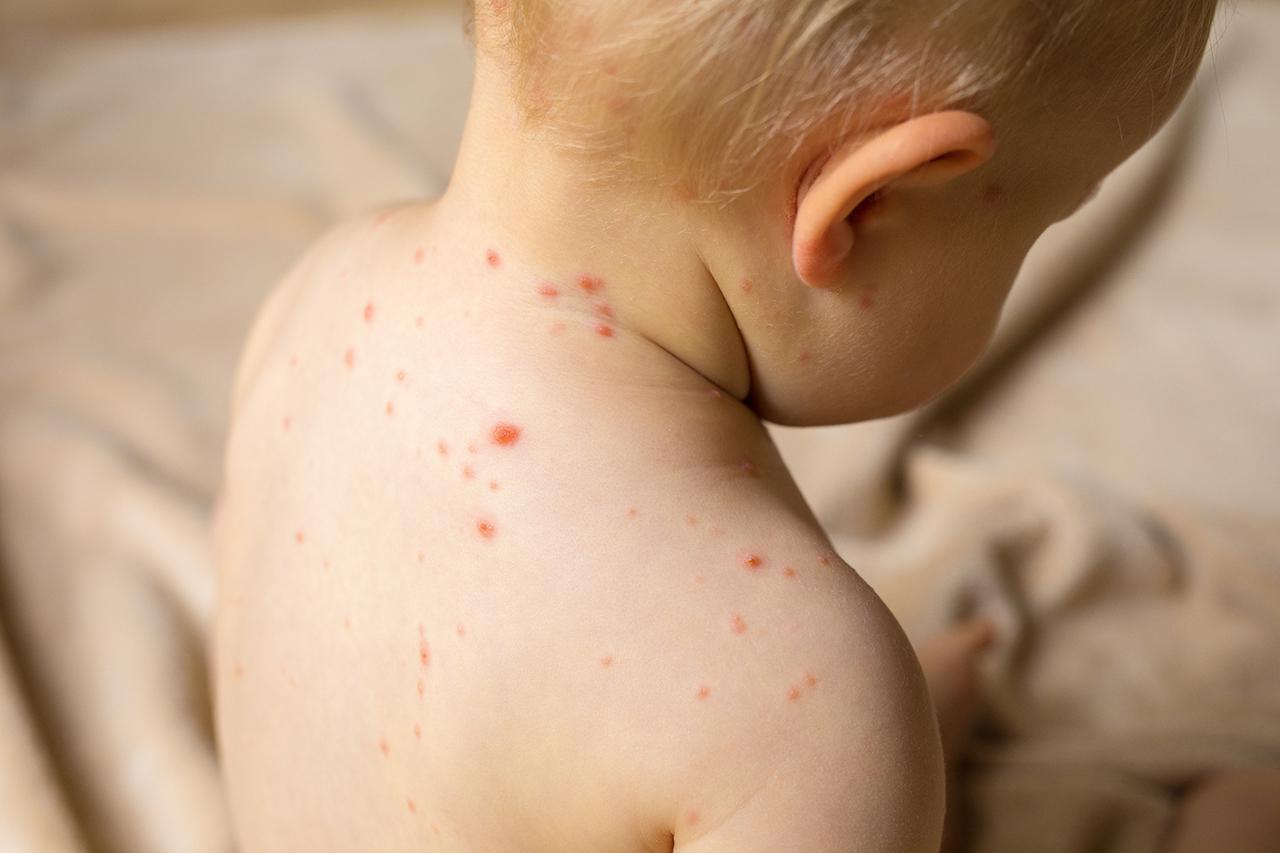Get a Shot: Avoid The Dots!!!

Recently an outbreak of chickenpox, affecting both children and adults was announced in Vietnam. Chickenpox in general is a mild disease, but it can cause severe complications—especially in babies, adolescents, elderly people, pregnant women and people whose immune system is compromised (e.g. those under steroid treatment, cancer therapy, who have certain genetic disorders, or who suffer from HIV).
Chickenpox, also known as varicella, is the primary infection caused by the varicella zoster virus. It manifests as an itchy rash that occurs with fever, headaches, sore throat or flu-like symptoms that last for a few days. The highly contagious nature of the virus leads to a high infection rate among exposed individuals.
Signs and Symptoms
Symptoms of chickenpox include red, itchy vesicles that are more intense on the trunk and head, and which then spread to almost everywhere else on the body (including the scalp, mouth, arms, legs, and genitals).
The rash begins as many small red skin lesions that look like pimples or insect bites. They appear in groups over 2 to 4 days, then develop into thin-walled blisters filled with fluid. The blister walls break, leaving open sores, which finally crust over to become dry, brown scabs.
The three stages of the chickenpox rash (red bumps, blisters, and scabs) can appear on the body at the same time. The rash may spread wider or be more severe in kids who have weak immune systems.
Complications
Chickenpox is normally a mild disease, but it can be serious and lead to complications or death, especially in high-risk individuals. Complications include:
- Bacterial infections of the skin, soft tissues, bones, joints or bloodstream (sepsis)
- Dehydration
- Pneumonia
- Inflammation of the brain (encephalitis)
- Toxic shock syndrome
- Reye’s syndrome for people who take aspirin during chickenpox
Transmission
Chickenpox is very contagious—most kids with a sibling who is infected will certainly get it (if they haven’t already had the disease or the vaccine), showing symptoms about two weeks after the first child does.
The chickenpox virus spreads both through the air by coughing and sneezing and by direct contact with mucus, saliva (spit), or fluid from the blisters. Chickenpox is contagious two days before the rash starts until all the blisters are crusted over.
A child with chickenpox should stay at home and rest until the rash is gone and all blisters have dried, usually about 1–2 weeks.
Treatments at Home
The chickenpox rash is very itchy. As much as possible, discourage kids from scratching to prevent broken blisters and infection. Preventing a bacterial infection is very important. To help relieve the itchiness, fever, and discomfort of chickenpox:
- Use cool wet compresses or give baths in cool water every 3-4 hours for the first few days.
- Pat (don’t rub) the body dry.
- Put calamine lotion on itchy areas (but don’t use it on the face, especially near the eyes).
- Wear loose clothing.
If your child has blisters in the mouth:
- Serve cold, soft, and bland foods, because chickenpox in the mouth can make drinking or eating difficult. Avoid anything acidic or salty, like orange juice or pretzels.
You may give paracetamol to help relieve pain. Consider putting mittens or socks on your child’s hands to prevent scratching during sleep. Also, trim the child’s fingernails and keep them clean.
When to seek medical assistance
Most chickenpox infections don’t require special medical treatment—but sometimes, problems may occur. Set an appointment with your doctor if your child:
- has a fever that lasts for more than four days or rises above 102°F (38.8°C)
- has a severe cough or trouble breathing
- has an area of rash that leaks pus (thick, yellowish fluid) or becomes red, warm, swollen, or sore
- has a severe headache
- is unusually drowsy or has trouble waking up
- has trouble looking at bright lights
- has difficulty walking
- seems confused
- seems very ill
- vomiting
- has a stiff neck
Prevention
The chickenpox (varicella) vaccine is the best way to prevent chickenpox. Experts from the Centers for Disease Control and Prevention (CDC) estimate that the vaccine provides complete protection from the virus for nearly 98 percent of people who receive both recommended doses. When the vaccine doesn’t provide complete protection, it significantly lessens the severity of the disease.
Healthy kids who have had chickenpox do not need the vaccine, they usually have lifelong protection against the illness.
Dr. Elvie Joy Atanque-Basa - Pediatrician, Family Medical Practice Danang
 Chúng tôi sử dụng cookies để cải thiện trải nghiệm của người dùng khi truy cập trang web này
Chúng tôi sử dụng cookies để cải thiện trải nghiệm của người dùng khi truy cập trang web này